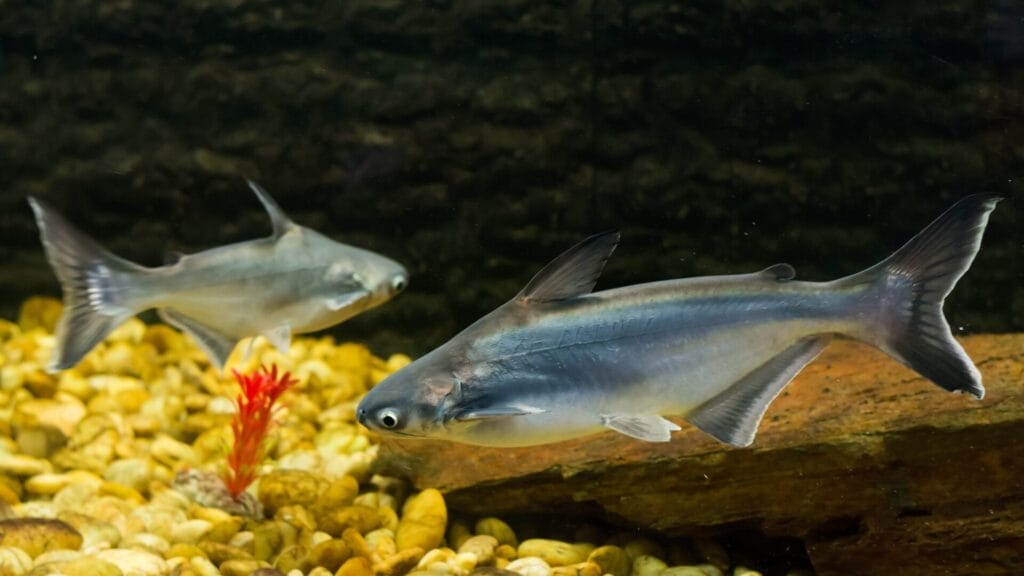Basa fish, a popular choice among seafood lovers, is gaining attention for its numerous health benefits. Whether you’re a seasoned cook or someone looking to incorporate more nutritious options into your diet, Basa fish offers a range of advantages that make it a standout choice. In this article, we’ll explore the benefits of Basa fish, its nutritional profile, and why it’s an excellent addition to any healthy eating plan.
Table of Contents
Basa Fish: An Overview
Basa fish (Pangasius bocourti) is a type of catfish native to the Mekong Delta in Vietnam, where it has been a staple of the local diet for generations. Known for its mild, slightly sweet flavor and tender, flaky texture, Basa has made its way into global markets due to its affordability and versatility. Often marketed as “river cobbler,” “Vietnamese catfish,” or simply “Basa,” this fish has become a popular choice for those seeking a healthy and budget-friendly protein source.

Nutritional Profile of Basa Fish: A Closer Look
Basa fish’s nutritional profile makes it an appealing choice for health-conscious consumers. It’s a low-calorie, high-protein food that provides essential nutrients without the high-fat content found in some other fish varieties. Beyond the basic nutrients, Basa fish contains several other compounds that contribute to its health benefits:
- Calories: A 100-gram serving of Basa fish contains approximately 90 calories, making it an excellent option for those watching their calorie intake.
- Protein: Basa fish is a rich source of protein, offering about 13 grams per 100-gram serving. Protein is vital for muscle repair, immune function, and overall health.
- Fats: This fish is low in fat, with only about 4 grams per serving, of which less than 1 gram is saturated fat. It’s also low in cholesterol, making it heart-friendly.
- Omega-3 Fatty Acids: While not as rich in omega-3s as some oily fish, Basa still provides a modest amount of these essential fats, which are crucial for brain health and reducing inflammation.
- Vitamins and Minerals: Basa fish is a good source of vitamin B12, phosphorus, and selenium, all of which play significant roles in maintaining good health.
- Low Mercury Levels: One of the key concerns when choosing fish is mercury content. Basa fish is classified as a low-mercury fish, which makes it a safer option for regular consumption, even for pregnant women and young children.
- Essential Amino Acids: Basa fish provides all nine essential amino acids, which are crucial for various bodily functions, including tissue repair, enzyme production, and hormone synthesis.
- Taurine: This amino acid, abundant in Basa fish, plays a role in bile salt formation, eye health, and cardiovascular function. Taurine is also known to have antioxidant properties, helping to protect cells from damage.
In-Depth Health Benefits of Basa Fish
1. Supports Weight Management with Lean Protein
Basa fish is an ideal addition to a weight management plan due to its low-calorie, high-protein content. Protein has a higher thermic effect than fats or carbohydrates, meaning your body uses more energy to digest and metabolize it. This can contribute to a higher calorie burn throughout the day, supporting weight loss efforts. Additionally, protein-rich foods like Basa help maintain muscle mass during weight loss, which is essential for a healthy metabolism.
2. Promotes Cardiovascular Health
The low levels of saturated fat and cholesterol in Basa fish make it a heart-healthy option. Additionally, the presence of omega-3 fatty acids, even in small amounts, contributes to cardiovascular health by helping to lower blood pressure and reduce the risk of heart disease. Omega-3 fatty acids, particularly EPA and DHA, are known to reduce inflammation, lower blood triglyceride levels, and prevent the formation of blood clots. Regular consumption of Basa fish can contribute to maintaining healthy cholesterol levels and reducing the risk of heart attacks and strokes.
3. Aids in Muscle Growth and Repair
Protein is essential for building and repairing muscles, and Basa fish provides a high-quality source of this nutrient. Whether you’re an athlete or simply trying to stay fit, incorporating Basa fish into your diet can support your muscle health. The protein in Basa helps you feel full longer, reducing the likelihood of overeating and aiding in muscle recovery after workouts.
4. Enhances Cognitive Function and Mental Health
Omega-3 fatty acids found in Basa fish are known for their role in supporting brain health. They help improve cognitive function, reduce the risk of mental decline, and may even lower the chances of developing conditions like Alzheimer’s disease. The brain is highly reliant on healthy fats, particularly omega-3 fatty acids, for optimal function. The modest levels of omega-3s in Basa fish, combined with its rich supply of B vitamins, make it a good food for cognitive health. Regular intake of omega-3s has been linked to lower risks of depression, anxiety, and cognitive decline.
5. Strengthens Bones and Teeth
Basa fish is rich in phosphorus, a mineral that is crucial for the development and maintenance of strong bones and teeth. Combined with calcium, phosphorus helps keep your skeletal system healthy. Phosphorus in Basa fish works synergistically with calcium to strengthen bones and teeth. Adequate phosphorus intake, coupled with calcium and vitamin D, helps prevent bone-related disorders such as osteoporosis, particularly in older adults.
6. Boosts Immune System
The selenium found in Basa fish is an antioxidant that plays a key role in the body’s immune response. Regular consumption of Basa can help strengthen your immune system, making you more resilient to illnesses. Selenium, a powerful antioxidant found in Basa fish, helps protect the body from oxidative stress by neutralizing free radicals. It also plays a vital role in the immune system by regulating the production of thyroid hormones and supporting immune responses. Selenium deficiency can lead to a weakened immune system, making the body more susceptible to infections and diseases.
7. Supports Eye Health
While omega-3s are widely known for their heart benefits, they also play a crucial role in maintaining eye health. DHA, a type of omega-3 fatty acid found in Basa fish, is a major structural component of the retina. Adequate intake of DHA helps reduce the risk of macular degeneration, a leading cause of blindness, and supports overall eye health, particularly in older adults.
8. Affordable and Accessible
One of the most significant benefits of Basa fish is its affordability. It’s often less expensive than other types of fish, making it an accessible option for people who want to eat healthily without breaking the bank. Its mild flavor also makes it versatile and easy to incorporate into various dishes.
9. Low in Environmental Contaminants
Basa fish, when farmed responsibly, tends to have lower levels of environmental contaminants like heavy metals and PCBs (polychlorinated biphenyls) compared to some other fish species. This makes it a safer choice for frequent consumption, particularly for populations at higher risk of contaminant exposure, such as pregnant women and young children. Always opt for Basa from reputable sources to ensure quality and safety.
Comparing Basa Fish to Other Popular Fish Varieties
When choosing fish, it’s helpful to compare Basa to other popular varieties to understand its unique benefits:
- Basa vs. Tilapia: Both Basa and Tilapia are mild-flavored, white-fleshed fish that are low in calories and fat. However, Basa has a slightly firmer texture and is often considered more flavorful. Nutritionally, Basa offers slightly more omega-3 fatty acids, making it a marginally better choice for heart health.
- Basa vs. Cod: Cod is another mild, white fish that is higher in omega-3 fatty acids compared to Basa. However, Basa is generally more affordable and lower in calories, making it a great option for those on a budget or calorie-restricted diet.
- Basa vs. Salmon: Salmon is known for its high omega-3 content, making it a superior choice for those specifically looking to boost their intake of these essential fats. However, Basa is much lower in calories and fat, offering a leaner alternative that can be consumed more frequently without concerns about calorie intake.
Sustainability and Environmental Impact of Basa Fish Farming
Sustainability is an important consideration when choosing any type of seafood. Basa fish farming, primarily conducted in Vietnam, has raised concerns about environmental practices. However, improvements in aquaculture practices, driven by global demand for responsibly sourced seafood, have led to more sustainable methods of farming Basa.
Organizations like the Aquaculture Stewardship Council (ASC) and GlobalG.A.P. (Good Agricultural Practices) provide certifications to farms that adhere to stringent environmental and social standards. When purchasing Basa fish, look for these certifications to ensure you’re choosing a product that supports sustainable practices.
Delicious Ways to Prepare Basa Fish
Basa fish’s mild flavor and tender texture make it incredibly versatile in the kitchen. Here are a few ideas for how to prepare it:
- Grilled Basa: Marinate the fish in your favorite herbs and spices, then grill it for a healthy and delicious meal.
- Baked Basa: Coat the fish with breadcrumbs and bake it for a crispy texture with fewer calories than frying.
- Basa Stir-Fry: Add Basa to a vegetable stir-fry for a quick and nutritious weeknight dinner.
- Fish Tacos: Use Basa as a filling for tacos, paired with fresh salsa and a squeeze of lime for a zesty twist.
- Basa Fish Curry: Cook Basa in a rich, spiced coconut curry for a flavorful and hearty meal. Serve it with rice or naan bread for a complete dish.
- Poached Basa in Tomato Sauce: Simmer Basa fillets in a tangy tomato sauce with garlic, olives, and capers. This Mediterranean-inspired dish pairs well with whole-grain pasta or quinoa.
- Basa Fish Tacos with Mango Salsa: For a tropical twist, top grilled Basa with a fresh mango salsa and serve in soft tortillas. Add a dollop of Greek yogurt and a sprinkle of fresh cilantro for extra flavor.
- Basa Fish Stew: Create a comforting fish stew by simmering Basa with potatoes, carrots, celery, and a splash of white wine. Finish with fresh herbs for a warming and satisfying meal.
- Basa Fish with Sour Cream Sauce and Green Scallions: For a fast and flavorful dish, try this Quick and Easy Basa fish recipe with a creamy sour cream sauce and green scallions. The rich sauce perfectly complements the mild flavor of Basa, making it a delightful weeknight dinner option.

FAQs about Basa Fish
Is Basa fish safe to eat?
Yes, Basa fish is safe to eat when sourced from reputable suppliers. Ensure it is properly cooked to eliminate any potential contaminants.
Can I eat Basa fish if I have high cholesterol?
Yes, Basa fish is low in cholesterol and saturated fat, making it a good choice for those managing their cholesterol levels.
How often should I eat Basa fish?
It’s generally recommended to eat fish, including Basa, at least twice a week as part of a balanced diet.
Is Basa fish sustainable?
Sustainability can vary depending on how the fish is farmed. Look for Basa that is certified by reputable organizations like the Aquaculture Stewardship Council (ASC) to ensure responsible sourcing.
Does Basa fish have bones?
Basa fish fillets are typically sold boneless, making them easy to cook and eat.
What are some popular dishes made with Basa fish?
Popular dishes include Basa curry, baked Basa with lemon butter, and pan-fried Basa with garlic and herbs.
Can Basa fish be part of a diabetic diet?
Yes, Basa fish can be an excellent addition to a diabetic diet. It’s low in calories and carbohydrates, making it a suitable protein source that doesn’t cause blood sugar spikes. However, it’s important to balance it with other nutrient-dense foods as part of a well-rounded meal plan.
How should I store Basa fish?
Fresh Basa fish should be stored in the coldest part of your refrigerator and consumed within 1-2 days of purchase. If you’re not planning to cook it immediately, Basa can be frozen for up to 3 months. Make sure to wrap it tightly in plastic wrap or store it in an airtight container to prevent freezer burn.
Is Basa fish gluten-free?
Yes, Basa fish is naturally gluten-free. However, be mindful of how it’s prepared, especially when breading or using sauces, to ensure the entire dish remains gluten-free.
Can Basa fish be included in a low-sodium diet?
Basa fish itself is low in sodium, making it suitable for those on a low-sodium diet. To keep the sodium content low, avoid seasoning it with salt-heavy spices or sauces and opt for fresh herbs, lemon, or garlic instead.
Can Basa fish be eaten during pregnancy?
Yes, Basa fish can be safely eaten during pregnancy. It is low in mercury and high in essential nutrients like protein, vitamin B12, and omega-3 fatty acids, which are beneficial for both the mother and the developing baby. However, as with all fish, it should be cooked thoroughly to reduce the risk of foodborne illnesses.
How does Basa fish taste?
Basa fish has a mild, slightly sweet flavor with a delicate, flaky texture. Its taste is often compared to that of other white fish like cod or haddock, making it a versatile ingredient that pairs well with a variety of seasonings and sauces. The mild flavor makes it a great choice for those who are new to eating fish or prefer a less “fishy” taste.
Where does Basa fish come from?
Basa fish is primarily farmed in the Mekong River Delta in Vietnam. The fish is native to this region, and the farming of Basa has become a significant industry in Vietnam, contributing to its export market. The fish is also farmed in other parts of Southeast Asia, but Vietnam remains the largest producer.
Conclusion: Why Basa Fish is a Smart Choice for Your Diet
Basa fish stands out as a versatile, affordable, and nutritious option that can easily be incorporated into a variety of dishes. Its low-calorie content, high-quality protein, and essential nutrients make it an excellent choice for anyone looking to improve their diet. Whether you’re seeking to manage your weight, support heart health, or simply enjoy a delicious meal, Basa fish is a healthy and tasty option worth considering. As always, choose responsibly sourced Basa to ensure you’re supporting sustainable practices while enjoying all the benefits this fish has to offer.







